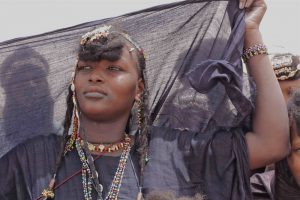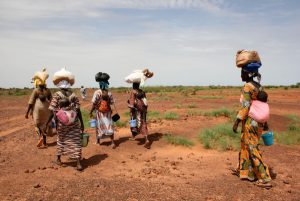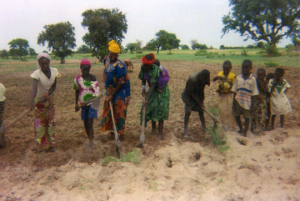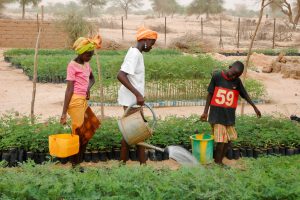by Jennifer Dees
I’ve always thought of the nomadic lifestyle as idyllic. I’ve spent hours reading travel blogs, staring at exotic pictures, and admiring those who’ve grabbed a backpack and left everything behind. I havn’t, however, given much thought to the realities of a nomadic lifestyle, or the struggles that come with constant travel. While writing for Wells Bring Hope, I investigated the various tribes that populate Niger. I discovered why they live the way they do, the culture that makes tribes unique, and the challenges that threaten their lifestyle and those of other pastoral farmers.
Nomadism
Nomadism is often found in places with arid land. The dry, hot environment of northern and eastern Niger is no exception, with 80 percent of Niger covered by the Sahara Desert. Nomadic tribes travel either irregularly or do a seasonal migration called transhumance. Those who practice transhumance remain in the Sahara during the brief rainy season and travel north to graze and sell animals in the dry season. The animals eat grasses and shrubs while the people use them for meat, milk, and wool. The time between grazing allows the land to replenish itself in time for the next migration. Some nomads use fire to burn away invading plant species to increase the quality of grass. According to the International Union for Conservation of Nature, nomadic pastoralism is between two and ten times more effective than farming in a single region. When changes to the environment occur, tribes exchange information with each other—separate tribes forming a kind of nomadic network. The major tribes in these areas are the Tuareg, Wodaabe, and Toubou. The vegetarian Toubou trade salt for food and objects. The Tuaregs have been called the “blue people” because their indigo-dyed clothes stain their skin blue. The Wodaabe clans gather every September for the Cure Salée salt market, when young men adorn costumes, perform the Yaake dance, and are judged by marriageable women. Each tribe has their own customs and traditions, although challenges are now threatening these identities.

A Tuareg refugee
Challenges
Niger suffers from desertification, caused by intense droughts or harsh agriculture. Normally, tribes keep their herds moving to avoid overgrazing, but once one source has dried up, it leaves few options. And farmers’ herds, which graze the same area every day, also cause desertification. Another threat to nomadism is the seizure or privatization of land. Cities grow where the water is, and farmers don’t want someone else’s animals grazing their land. With a 3.8% rise in population every year (the United States’ is 0.7%), Niger is running out of open arable soil. Nomadic tribes are often held responsible for depleting resources, although issues such as climate change and preexisting conditions seem to be a larger cause.

Niger stressed by drought and poor harvest
Becoming Sedentary
Tribes that become sedentary can try to cultivate land or move to cities in search of employment. If they fail to find a job, they may end up in slums in even worse conditions. If they develop a permanent base outside of town, sometimes the men will do migrant labor, splitting from their families for months at a time. While there are good things about sedentism, such as better access to education, the shift away from nomadism results in a huge loss of identity and autonomy. Nomads must also be careful about sanitization, especially when it concerns water. Unclean water attracts disease-carrying insects, which spread the disease quickly in a confined area like a village. If a water source becomes undrinkable or dries up, women and girls must walk for miles to find another. Relocating closer to another source is difficult and often fruitless. They must pack up their families, belongings, and herds, and abandon homes and farmland. If all sources of water are contaminated, then moving closer won’t solve their problem. So not only is desertification affecting nomads, it continues to afflict those who settle or have settled. According to the World Bank “Only 20 percent of the Sahel’s irrigation potential has been developed” and a quarter of that is in disrepair. Since “women account for the majority of Africa’s farmers,” they are impacted the most.

Sedentary farmers in Niger
Wells Bring Hope
Wells Bring Hope helps villages that lack a clean, nearby water source. We drill wells and educate the community on how to care for them. For nomadic-to-sedentary tribes, water means staying together as a community and holding onto their heritage. And as more wells are drilled and more people learn how to farm and care for the land, there is hope that someday desertification can be reversed. The people of Niger, nomadic or sedentary, can continue their traditions and culture and make a better life for themselves, wherever they are.

Wells Bring Hope provides sustainable agriculture


